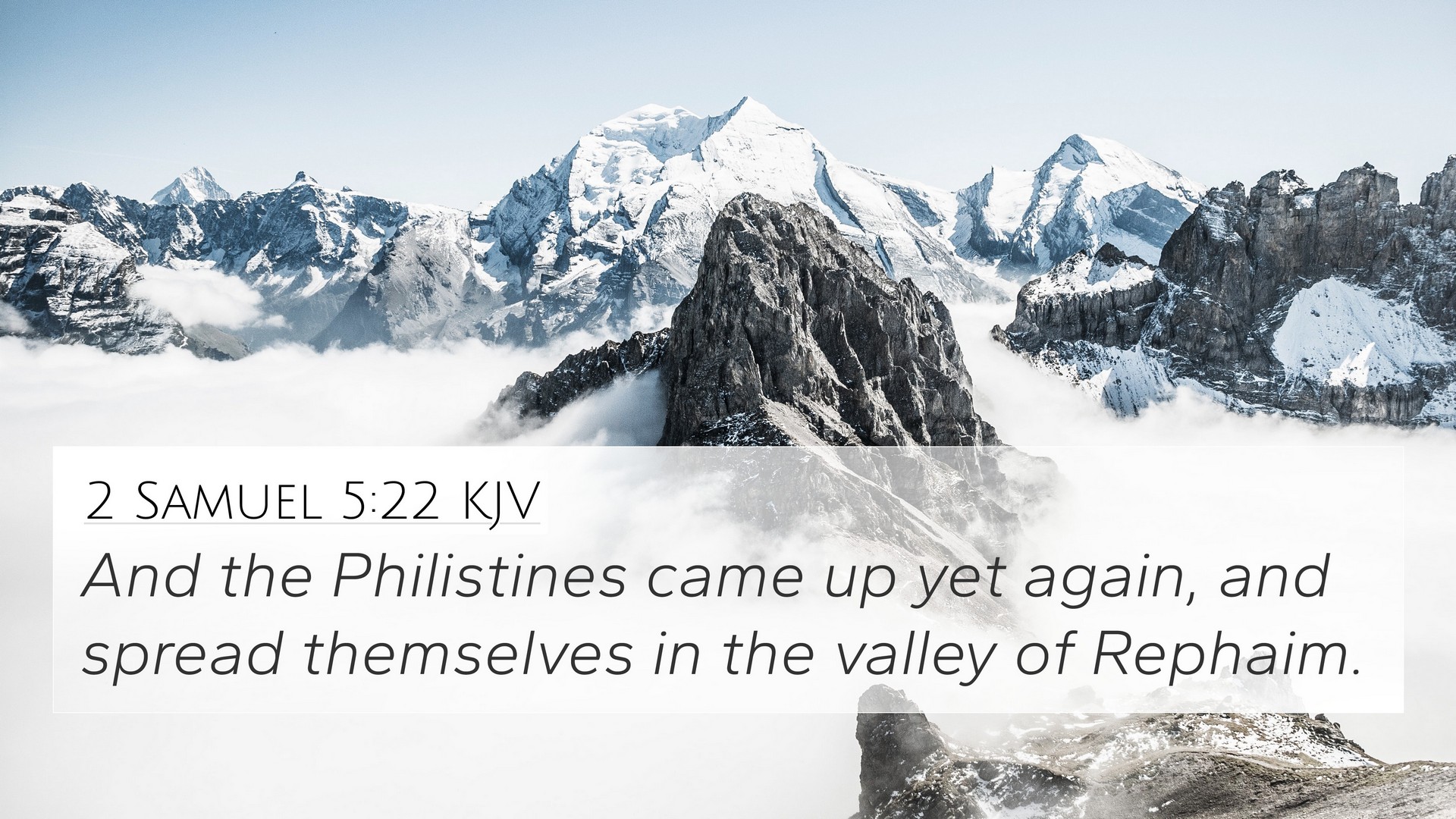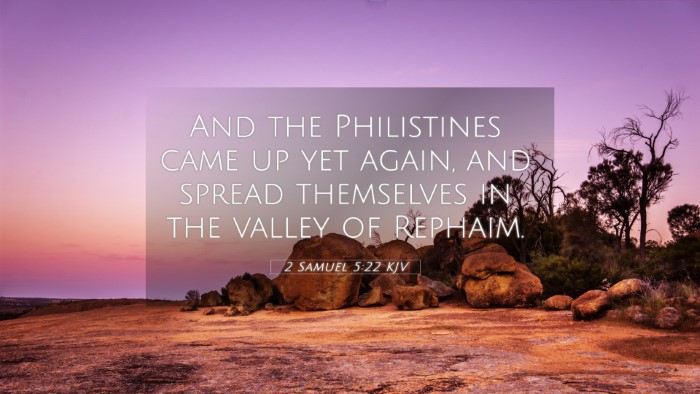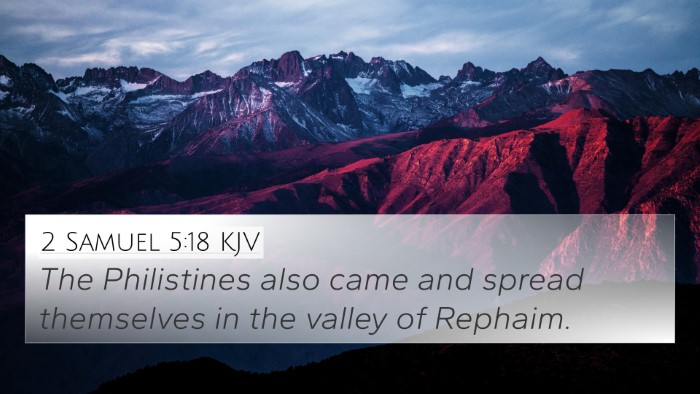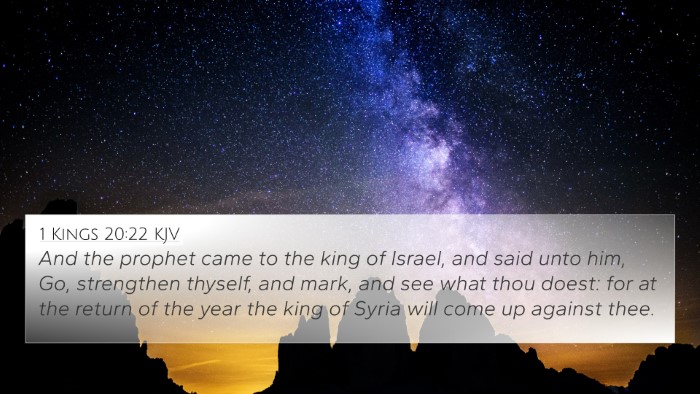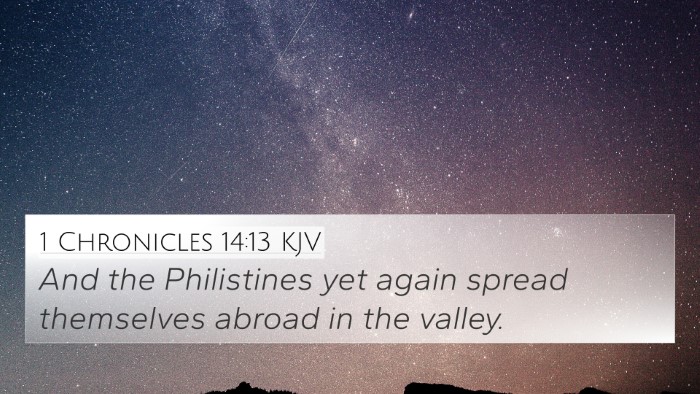Understanding 2 Samuel 5:22
2 Samuel 5:22 states:
"And the Philistines came up yet again, and spread themselves in the valley of Rephaim."
This verse depicts the recurring conflict between David and the Philistines, symbolizing ongoing spiritual battles that believers face even when they experience victory. Here, we provide a detailed analysis, drawing insights from various public domain commentaries, to enhance understanding of this passage.
Contextual Overview
In the broader context of 2 Samuel, this verse comes after David has been established as king over Israel. Despite his recent triumphs, enemies still pose a threat. The Philistines, a constant adversary, represent the struggles that often follow periods of spiritual elevation.
Commentary Insights
Matthew Henry's Commentary
Matthew Henry emphasizes that the Philistines frequently devised schemes against David, portraying that those who oppose God's anointed will continually return to challenge faith. Henry notes that the valley of Rephaim signifies a place of conflict but also potential divine intervention.
Albert Barnes' Comments
Albert Barnes highlights that the recurrence of the Philistine attack signals the need for vigilance in faith. He interprets this as a lesson that even in times of strength, believers must remain alert and grounded, for adversities may arise unexpectedly.
Adam Clarke's Commentary
Adam Clarke remarks on the geographical and spiritual significance of the Valley of Rephaim as a battlefield. He connects David's situation to broader themes of God's providence, emphasizing that even when challenges loom, God's support remains unwavering for those who trust in Him.
Thematic Connections and Cross References
Understanding 2 Samuel 5:22 also involves exploring its connections to other biblical texts. Below are key verses that relate to this theme of conflict, resilience, and divine support:
- 1 Chronicles 14:9-12: Discusses the Philistine’s attacks and God’s deliverance.
- Psalm 20:1-2: A prayer for the Lord's help in times of trouble.
- Romans 8:31: "If God be for us, who can be against us?" - emphasizing divine support.
- 2 Corinthians 10:4: The weapons we use in battles are spiritual, highlighting the nature of our warfare.
- Ephesians 6:12: "For we do not wrestle against flesh and blood..." - defining the nature of Christian conflict.
- Joshua 10:12-14: God fights for His people in the battle against enemies, symbolizing divine intervention.
- Hebrews 11:32-34: Lists heroes of faith who overcame challenges, drawing parallels to David's perseverance.
Inter-Biblical Dialogue
This verse can be understood within the greater narrative of Scripture, reflecting the cyclical nature of spiritual warfare. The Philistines’ relentless opposition serves not only as a historical moment but as a type and shadow pointing towards New Testament teachings on the Christian life’s trials.
Spiritual Applications
For believers today, 2 Samuel 5:22 serves as a reminder that:
- Conflicts are inevitable: Just as David faced repeated challenges, Christians should expect trials.
- Vigilance is vital: One must remain steadfast in faith, continually seeking God's guidance and strength.
- God’s power is present: Believers can take comfort that God's presence and support accompany them, even during difficult times.
Conclusion
As we reflect on 2 Samuel 5:22, it serves as a profound illustration of the ongoing battles faced by those faithful to God. Through the insights of scholars like Matthew Henry, Albert Barnes, and Adam Clarke, we glean not just historical context but also invaluable spiritual truths relevant for today's believers.
Further Study and Tools
To delve deeper into the connections between Bible verses, consider employing:
- Bible concordance: A helpful tool for locating terms and themes across the Bible.
- Bible cross-reference guide: A structured approach to explore related scriptures.
- Cross-reference Bible study methods: Techniques for enhancing understanding through connected verses.
- Online and print Bible reference resources: Various materials available for deeper exploration and thematic studies.
